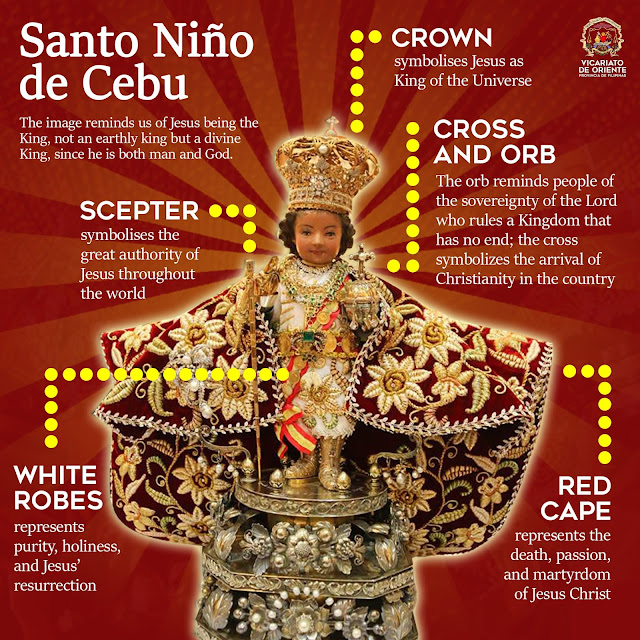300,000 Join in Santo Nino de Cebu Procession or "Walk with Jesus" which is Nearly 500 Year Old in the Philippines

The Santo Niño procession festival in the Philippines was attended by 300,000 people.
Santo Niño is the title of the Child Jesus in the country, dating back to the Spanish colonial days
The 'Walk with Jesus' procession in the Visayas region in the central Philippines, on January 5th, started at 4 am from a grandstand to the Basilica Minore del Santo Niño in downtown Cebu City.
SEE ALSO- Novena to Santo Nino de Cebu - Miracle Prayer to the Divine Child Jesus https://www.catholicnewsworld.com/2022/01/novena-to-santo-nino-de-cebu-miracle.html
Longer History of Santo Nino - https://www.catholicnewsworld.com/2022/01/santo-nino-de-cebu-feast-day-on-3rd.html
Thousands of Catholics in the Philippines joined the Santo Niño procession in honor of the Child Jesus.
The “Walk with Jesus” annual procession is attended by churchgoers and clergymen from all over the country in honor of Santo Niño. It was in Cebu the Spanish rulers established their first permanent settlement. The theme of the 458th celebration is “Santo Niño: Our source of peace in the walk of faith.” The festival is taking place after a gap of three years due to the Covid-19 pandemic. The annual festival, with a nine-day novena, will end on Jan. 15. “May our faith in Christ grow. Despite many obstacles, we should remain faithful to God,” Archbishop Jose Palma of Cebu said in a message. Devotees brought replicas of Child Jesus dressed in different costumes, depicting various professions in the country.
The “Walk with Jesus” annual procession is attended by churchgoers and clergymen from all over the country in honor of Santo Niño. It was in Cebu the Spanish rulers established their first permanent settlement. The theme of the 458th celebration is “Santo Niño: Our source of peace in the walk of faith.” The festival is taking place after a gap of three years due to the Covid-19 pandemic. The annual festival, with a nine-day novena, will end on Jan. 15. “May our faith in Christ grow. Despite many obstacles, we should remain faithful to God,” Archbishop Jose Palma of Cebu said in a message. Devotees brought replicas of Child Jesus dressed in different costumes, depicting various professions in the country.
As thousands attended the procession, the government has put in place several health protocols. At least 600 policemen are deployed to secure the 2-km long procession route. Devotees were observed social distancing norms like not kissing the images to prevent the spread of the virus. Inside the Basilica, churchgoers have to wear face masks.
Local media, quoting the Cebu City police, said that more than 300,000 devotees joined the procession on Jan 5.
History of SEÑOR SANTO NIÑO DE CEBU
History has it that the image of the Santo Niño was a gift from the Spanish navigators to Queen Juana, the wife of King Humabon, that converted to Christianity, which is believed to arrive first to the country’s shores through Cebu.
Catholic catechism teaches that the wooden image is a concrete representation of the Child Jesus that also reflects child-like virtues like humility, simplicity and obedience.
Despite being depicted a child, the Santo Niño remains to be king and this image is made evident on his vestments and other symbols he wears.
Image and History Source: https://www.facebook.com/OSAorient/photos/se%C3%B1or-santo-ni%C3%B1o-de-cebuhistory-has-it-that-the-image-of-the-santo-ni%C3%B1o-was-a-gi/1128013484294865/ and UCAN News
Comments